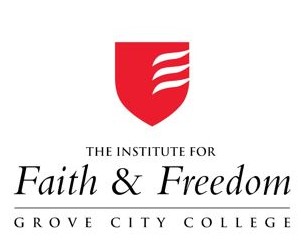No Retreat for Christian Conservatives

In trying to explain the results of two consecutive presidential defeats, some Republican strategists privately blame Christian evangelicals for the perceived decline in their political participation. Conventional wisdom argues, unconvincingly, that three factors make the once mighty movement of “Born Again Christians” a spent force in American Politics.
First, such voters seem to comprise a declining percentage of the electorate.
Second, they may have lost their enthusiasm for the GOP and felt particular discomfort with Mitt Romney’s Mormonism.
And finally, they feel disheartened by shifting public sentiment on gay marriage and marijuana and find themselves increasingly outside the mainstream of public opinion.
In fact, none of these three contentions counts as true or accurate and comparisons of recent exit polls should obliterate all groundless assumptions about the diminished role of Christian conservatives. Exit polls matter because they measure how respondents actually voted, not the direction they leaned at one point or another in the course of the campaign.
Exit polling for 2012 showed the percentage of the electorate identifying as “white, born-again Christians” increasing from their big year of 2004, the last time a GOP nominee won the White House. When the outspokenly Christian George W. Bush beat John Kerry, 23 percent of all voters said they were “white evangelicals” but in the Obama-Romney race that number jumped significantly to 26 percent.
Meanwhile, the numbers gave no evidence of disillusionment with the party’s standard-bearer: Mitt Romney won 78 percent of self-described “born again” voters – drawing precisely the same proportion that George W. Bush won of his fellow evangelicals. Yes, a few Christian leaders grumbled over their disagreements with the LDS church, but that didn’t stop born-again voters from giving the nation’s first Mormon candidate a huge 57 point margin over Barack Obama.
Moreover, anyone who sees religious conservatives as dejected or disengaged because of recent setbacks on marriage or marijuana hasn’t visited their churches, conventions or assemblages of activists. Issues of religious liberty resonate powerfully with faith-based conservatives; controversial government efforts to force elderly nuns to offer free birth control to employees, or to compel Christian florists to provide artful arrangements for gay weddings they prefer not to attend, have produced a new determination to fight back. The recent low-budget Christian film GOD’S NOT DEAD told a melodramatic tale of a devout student standing firm against an arrogant professor’s attempt to force all his pupils to affirm atheism. In its first two weeks of release, with scant advertising and no associated A-list names, this little film scored in the box office top five and earned more than $20 million – an achievement described in mainstream media as “astounding.”
Finally, exit polling shows that fervent Christian conservatives stand far closer to the middle-of-the-road than the religiously disaffiliated voters who provided Barack Obama’s most reliable base of support. In 2012, 42 percent of the electorate said they attended church once a week or more – a slightly higher figure than the 41 percent who reported that level of participation in 2004. Among those voters, Mitt Romney won by 20 points. In fact, among the staggering 82 percent of Americans who told exit pollsters they attended church even “a few times a year” or more, Romney also won a solid majority. Obama, in other words, owed his margin of victory to a small minority of the electorate – 17 percent – who proudly declared that they “never” attended church or synagogue. Within this religiously disconnected congregation, the president prevailed by a crushing 28 points, thereby capturing the election. Barack Obama may or may not have thanked God for his re-election victory but he certainly should have thanked the Godless.
Yes, these religiously disaffiliated have increased as a percentage of voters since 2004, but so have those who attend services weekly, or describe themselves as “born again,” or express other measures of religious enthusiasm. The shrinking populations are those in the center, who may go to church monthly or just a few times a year, and split their votes more evenly between Republicans and Democrats. Just as they qualify as swing voters, the direction of their swings in religious terms – toward more or less faith-based participation and affiliation – may determine the future shape of American politics.
This column originally appeared at TruthRevolt.org on April 10, 2014.




















